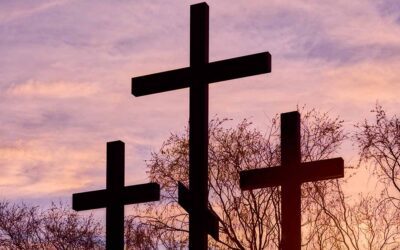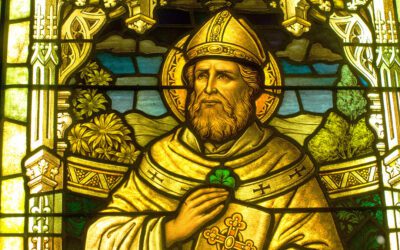Lent 1
Collect
Almighty God, whose Son Jesus Christ fasted forty days in the wilderness,
and was tempted as we are, yet without sin: Give us grace to discipline ourselves in obedience to your Spirit; and, as you know our weakness, so may we know your power to save; through Jesus Christ our Lord.
Almighty and everlasting God, you hate nothing that you have made and forgive the sins of all those who are penitent: Create and make in us new and contrite hearts that we, worthily lamenting our sins and acknowledging our wretchedness, may receive from you, the God of all mercy, perfect remission and forgiveness; through Jesus Christ our Lord.
Peter 3: 18-22
Mark 1: 9-15
Neither constitute the entire meaning of Lent itself, whether as a penance or self-punishment like a hair shirt (well, not quite that extreme), perhaps as a time of faithful recommitment, maybe a reminder of the season; perhaps all of these.
But that’s not the real point. In reality, in addition to the above (and arguably more significant) Lent provides a time to go out into the wilderness and prepare, even if that time spent in the wilderness is only for a few moments each day. A wilderness in solitude, without disturbance, facing temptation, self-searching, repenting, meditating, praying. Certainly, it is also a preparation for the dramatic events of Easter, when despair will be turned into celebration—but it’s more than that. It’s a time when we have the opportunity to hear the uninterrupted voice of the Holy Spirit equipping us for living as the body of Christ for every single day of our lives.
As Edith Stein says so movingly in the passage below, the world is in flames. Where can we go? The answer is in the power of a cross – and an empty tomb.
A meditation for Lent – Edith Stein
“THY WILL BE DONE,” in its full extent, must be the guideline for the Christian life. It must regulate the day from morning to evening, the course of the year, and the entire of life. Only then will it be the sole concern of the Christian. All other concerns the Lord takes over. This one alone, however, remains ours as long as we live. And, sooner or later, we begin to realize this. In the childhood of the spiritual life, when we have just begun to allow ourselves to be directed by God, we feel his guiding hand quite firmly and surely. But it doesn’t always stay that way. Whoever belongs to Christ must go the whole way with him. He must mature to adulthood: he must one day or other walk the way of the cross to Gethsemane and Golgotha.
Will you remain faithful to the Crucified? Consider carefully! The world is in flames, the battle between Christ and the Antichrist has broken into the open. If you decide for Christ, it could cost you your life. Carefully consider what you promise.
Before you hangs the Saviour on the cross, because he became obedient to death on the cross. He came into the world not to do his own will, but his Father’s will. If you intend to be the bride of the Crucified, you too must completely renounce your own will and no longer have any desire except to fulfil God’s will.
The Saviour hangs naked and destitute before you on the cross because he has chosen poverty. Those who want to follow him must renounce all earthly goods. It is not enough that you once left everything out there and came to the monastery. You must be serious about it now as well. Gratefully receive what God’s providence sends you. Joyfully do without what he may let you do without. Do not be concerned with your own body, with its trivial necessities and inclinations, but leave concern to those who are entrusted with it. Do not be concerned about the coming day and the coming meal.
The Saviour hangs before you with a pierced heart. He has spilled his heart’s blood to win your heart. If you want to follow him in holy purity, your heart must be free of every earthly desire. Jesus, the Crucified, is to be the only object of your longings, your wishes, your thoughts.
The world is in flames. Are you impelled to put them out? Look at the cross. From the open heart gushes the blood of the Saviour. This extinguishes the flames of hell. Make your heart free by the faithful fulfilment of your vows; then the flood of divine love will be poured into your heart until it overflows and becomes fruitful to all the ends of the earth.
Do you hear the groans of the wounded on the battlefields in the west and the east? You are not a physician and not a nurse and cannot bind up the wounds. You cannot get to them. Do you hear the anguish of the dying? You would like to be a priest and comfort them. Does the lament of the widows and orphans distress you? You would like to be an angel of mercy and help them. Look at the Crucified. If you are bound to him by the faithful observance of your holy vows, your being is precious blood. Bound to him, you are omnipresent as he is. You cannot help here or there like the physician, the nurse, the priest. You can be at all fronts, wherever there is grief, in the power of the cross. Your compassionate love takes you everywhere, this love from the divine heart. Its precious blood is poured everywhere, soothing, healing, saving.
The eyes of the Crucified look down on you, asking, probing. Will you make your covenant with the Crucified anew in all seriousness? What will you answer him?
“Lord, where shall we go? You have the words of eternal life.”
Edith Stein (1891–1942) came from an Orthodox Jewish family. She became an atheist as a teenager, but at the age of thirty encountered the autobiography of Saint Teresa of Ávila, converted to Catholicism, and took vows as a Carmelite nun. Because of her Jewish ancestry she was executed at Auschwitz by the Nazis in August 1942.
Previous Posts
Praying Together 28th April 2024
‘If you love God, then you love your brothers and sisters’. You cannot have one without the other. If you do not love your brother and your sister, you cannot claim that you love God. No exclusions.
Praying Together 21st April 2024
There is only one leader who invites us to follow of whom we can be sure – the one who is prepared to lay down His life.
Praying Together 14th April 2024
It is easy, with hindsight, to criticise the disciples for their incredulity. But we have to ask ourselves what we would do in their place.
Praying Together 7th April 2024
We are challenged to decide what we need to ‘see’ to believe – and then to seek it in the power of the Holy Spirit.
Praying Together 31st March 2024 Easter Day
“I have seen the Lord”. It is difficult to imagine her emotions. She has seen the Lord! She doesn’t yet understand fully – but her eyes have seen Him. Her life is changed for ever, and she doesn’t care who knows it.
Praying Together 24th March 2024
But Jesus is aware of what He will have to endure in order to fulfil His mission of salvation – and He sets the necessary elements in motion.
Praying Together 17th March 2024
The Anglican Church of Ireland has produced an excellent example of the way in which St Patrick’s life embodies the Five marks of Mission – a real cause for celebration and a model for us to follow (And by the way, St. Patrick’s flag colour is blue, not green.)
Praying Together 10th March 2024
It’s a day of being aware of, and thankful for, the caring and loving relationships that exist within family and friends.
Praying Together 3rd March 2024
And what of our anger? Is it based on injury to self? Injury to others? Or injury to love, to forgive, to serve? Can we defend it at the foot of the Kingly throne?
Praying Together 25th February 2024
‘Which am I – the chicken or the pig? Jesus makes it clear that in following Him, there is no half-way house – our values are either of the material world, or of the Kingdom.
Praying Together 11th February 2024
It’s the same for us – we cannot build our faith on just one or two aspects of Jesus’ story. The fundamental truth we need to accept that He is risen from the dead and He is Lord, alive.
Praying Together 4th February 2024
He asks for no reward, save that of loving His creation, His Father and our neighbours (all of them) as He loves – do we even do that?













